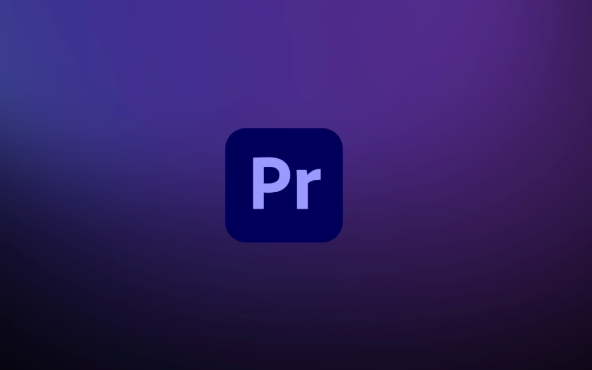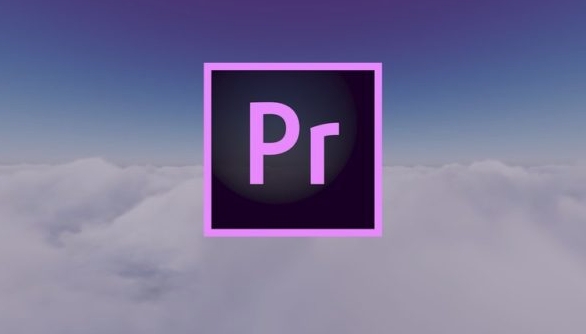how to use text-based editing in Premiere Pro
Jul 18, 2025 am 12:55 AMText-based editing in Premiere Pro enables editors to modify video by working directly with transcribed text, improving efficiency for dialogue-heavy content. 1) It uses Adobe Sensei AI to generate transcripts from audio clips automatically. 2) Editors can highlight and edit sections of the transcript to manipulate corresponding video segments without timeline interaction. 3) Ideal for long interviews, quick phrase searches, and experimenting with story structures. 4) To enable it, go to the Timeline panel, click the Text-Based Editing icon, and select Generate Transcript. 5) Transcripts can be edited offline or imported via third-party services as XML or EDL files. 6) The Transcript Panel aligns spoken words with timestamps, allowing users to cut, delete, mute, or reorder clips using the transcript. 7) A search bar helps locate specific keywords quickly. 8) Tips for better results include recording clean audio, avoiding overlapping speech, using lapel mics, and checking for transcription errors. 9) Regenerate the transcript if it becomes out of sync. 10) Users can toggle between Original Timecode and Sequence Timecode for flexibility during editing. This feature streamlines the editing process and enhances productivity once mastered.

Text-based editing in Premiere Pro is a game-changer for editors who work with dialogue-heavy content. It lets you edit video by working directly with the transcribed text instead of scrubbing through clips manually. This feature, powered by Adobe Sensei AI technology, makes cutting interviews, podcasts, or any spoken-word footage much faster and more intuitive.

What Is Text-Based Editing?
Text-based editing allows you to convert spoken audio into searchable, editable text. Once enabled, each clip with detectable speech will have a transcript generated automatically. You can then highlight parts of the transcript and perform edits—like cutting, trimming, or rearranging—without touching the timeline at all.

This is especially useful when:
- You're dealing with long interview clips
- You need to find specific phrases quickly
- You want to experiment with different story structures fast
Just note: the feature works best with clear speech and minimal background noise.

How to Enable Text-Based Editing
Before you start, make sure your sequence contains clips with audio. Then follow these steps:
- Go to the Timeline panel
- Click the Text-Based Editing icon (looks like a speech bubble)
- Select Generate Transcript from the dropdown menu
Premiere Pro will analyze the audio and create a full transcript. If your project is set to a specific language, it will try to match that automatically, but you can change the language setting before generating if needed.
You can also generate transcripts for offline editing or use third-party transcription services and import them as XML or EDL files later.
Editing with the Transcript Panel
Once the transcript appears, you’ll see the spoken words lined up with timestamps. Here’s how to use it effectively:
- Highlight sections of the transcript to select corresponding video/audio in the timeline
- Use the right-click menu to cut, delete, or mute selected segments
- Drag highlighted sections to reorder clips or build a new sequence
One trick is using the “Create Sequence from Selection” option. This pulls only the selected lines into a new sequence, making rough cuts incredibly fast.
Also, the search bar above the transcript helps you jump to keywords instantly—great for finding exact quotes or topics buried in long footage.
Tips for Better Results
Transcription accuracy plays a big role in how smoothly this works. Here are a few things to keep in mind:
- Record clean audio whenever possible
- Avoid multiple people speaking over each other
- Use a lapel mic to reduce ambient noise
- Check the transcript for errors before making major edits
If the transcript gets out of sync with the clip (for example, after trimming), just right-click the clip and choose "Regenerate Transcript" to refresh it.
Another small but handy tip: you can toggle between Original Timecode and Sequence Timecode in the transcript view depending on whether you're editing a source clip or a full timeline sequence.
That's basically how text-based editing works in Premiere Pro. It might seem minor at first, but once you get used to shaping your edit through text, you'll wonder how you ever worked without it.
The above is the detailed content of how to use text-based editing in Premiere Pro. For more information, please follow other related articles on the PHP Chinese website!

Hot AI Tools

Undress AI Tool
Undress images for free

Undresser.AI Undress
AI-powered app for creating realistic nude photos

AI Clothes Remover
Online AI tool for removing clothes from photos.

Clothoff.io
AI clothes remover

Video Face Swap
Swap faces in any video effortlessly with our completely free AI face swap tool!

Hot Article

Hot Tools

Notepad++7.3.1
Easy-to-use and free code editor

SublimeText3 Chinese version
Chinese version, very easy to use

Zend Studio 13.0.1
Powerful PHP integrated development environment

Dreamweaver CS6
Visual web development tools

SublimeText3 Mac version
God-level code editing software (SublimeText3)

Hot Topics
 how to fix audio drift in Premiere Pro
Jul 02, 2025 pm 04:01 PM
how to fix audio drift in Premiere Pro
Jul 02, 2025 pm 04:01 PM
To solve the problem of audio and video out of synchronization in PremierePro, first check the timeline settings to ensure that the frame rate matches the audio sample rate; secondly enable hardware acceleration and optimize cache settings to improve performance; then use the synchronization lock function to prevent mismoving the track; finally pay attention to exporting settings, select a stable format and confirm that the audio parameters are correct. Perform the above steps in turn to effectively avoid audio and video drift problems.
 how to use the razor tool in Premiere Pro
Jul 02, 2025 pm 03:58 PM
how to use the razor tool in Premiere Pro
Jul 02, 2025 pm 03:58 PM
The method to quickly use the razor tool in PremierePro is to press the C key; 1. Press the C key on the keyboard to switch to the razor tool, or you can find the knife icon in the left toolbar to select it; 2. Position the playback head to the position you need to cut, click the clip to cut; 3. If you need to delete the middle part, you can select the middle section and press Delete to delete it after the same clip is cut again; 4. Use the selection tool (V) to adjust the sequence of the clips or leave a blank timeline; 5. If you need to cut the multi-track clip at the same time, you can check "All tracks" in the top menu; 6. If you accidentally cut the wrong clips, you can undo or right-click the clips; 7. In addition, press and hold the Alt left mouse button to temporarily enable the razor function without switching the tool; pay attention to ensuring that the playback head is used when using it; 6. If you accidentally cut it wrong, you can undo or right-click the clips; 7. In addition, press and hold the left mouse button of the Alt mouse to temporarily enable the razor function without switching the tool;
 how to make text appear one letter at a time in Premiere Pro
Jul 08, 2025 am 12:02 AM
how to make text appear one letter at a time in Premiere Pro
Jul 08, 2025 am 12:02 AM
To display text letter by letter, use PremierePro’s built-in “Typewriter” animation preset or manually adjust the opacity or zoom of each character. 1. Use presets such as "Typewriter-Reveal" in the "EssentialGraphics" panel to directly apply the verbatim effect; 2. Enable character-by-character animation through the "EssentialGraphics panel" and select Opacity or Scale for customization; 3. Set Start and EndOffset to control the animation rhythm and combine keyframes to achieve dynamic changes; 4. You can adjust the offset, add blur or color change to enhance the effect. It is recommended that each letter lasts 0.1-0.2 seconds and is suitable for phrases rather than long paragraphs.
 how to fix red frames in Premiere Pro
Jul 07, 2025 am 12:16 AM
how to fix red frames in Premiere Pro
Jul 07, 2025 am 12:16 AM
The red box appears in PremierePro because the preview file is not generated or the material path is incorrect. Common reasons include just imported projects, material path changes, insufficient cache space, or failed proxy files loading. Solution: 1. Wait for automatic cache generation; 2. Manually generate preview rendering timeline; 3. Check and relink missing materials; 4. Clean and rebuild media cache. When using proxy clips, you should confirm that the proxy files are correctly associated and appropriately reduce the playback resolution to improve preview fluency.
 how to apply an effect to multiple clips in Premiere Pro
Jul 05, 2025 am 12:22 AM
how to apply an effect to multiple clips in Premiere Pro
Jul 05, 2025 am 12:22 AM
There are three ways to quickly add the same effect to multiple clips in PremierePro: 1. Use the "EffectChainer" tool to first apply the effect to one clip, and then click other clips one by one through the chain icon in the effect panel to apply it in batches; 2. By copying and pasting attributes, right-click the first clip with added effects in the timeline to select copy, then select other clips to right-click to select paste attributes, and only select video or audio effects to paste; 3. Use the adjustment layer to process the video effect, create a new adjustment layer and place it above the target clip, and drag the effect to the adjustment layer to affect all clips below it. The above methods can significantly improve work efficiency and are suitable for the needs of different scenarios.
 how to normalize audio in Premiere Pro
Jul 04, 2025 am 12:16 AM
how to normalize audio in Premiere Pro
Jul 04, 2025 am 12:16 AM
NormalizingaudioinPremiereProadjuststheloudestpeakinacliptoatargetlevel,balancingvolumeacrossclips.1.Right-clickaclipandchoose“AudioGain…”2.Select“NormalizeMaxPeakto”andsetatargetlike-1dBor-3dB.3.ClickOKtoapply;thisscaleseachclip’svolumeuniformly.Itw
 how to rotate video in Premiere Pro
Jul 04, 2025 am 01:33 AM
how to rotate video in Premiere Pro
Jul 04, 2025 am 01:33 AM
There are three ways to rotate videos in PremierePro. 1. Use the "Motion" option in the "Effect Control" to accurately adjust the rotation angle, which is suitable for fine operation; 2. Use the "Create Sequence from Clip" function to automatically correct the vertical video direction of the mobile phone, saving time and effort; 3. Use "Crop" and "Zoom" to adjust the screen to fill the screen and avoid black edges to ensure complete output quality.
 how to fade audio in Premiere Pro
Jul 05, 2025 am 12:50 AM
how to fade audio in Premiere Pro
Jul 05, 2025 am 12:50 AM
Adding a fade effect to audio in PremierePro can be achieved in three ways: 1. Use audio transition effects such as "Constant Gain" or "Exponential Fade" and drag directly to the beginning of the audio clip; 2. Manually add volume keyframes in the "Effect Controls" panel, and control fade speed and nature by adjusting the keyframe position and curve; 3. Use the "Trail Mixer" to drag the volume slider in real time to record the operation track, which is suitable for unified management of multi-track audio. Each method has its own advantages. Newbie can choose to quickly achieve the transition effect, advanced users are suitable for manual adjustment or use the track mixer to obtain more refined control. Finally, it is recommended that preview ensures that the audio transition is natural and smooth.






